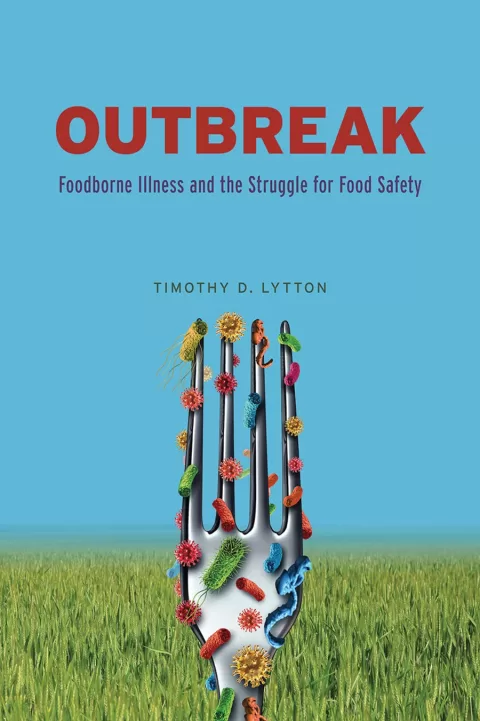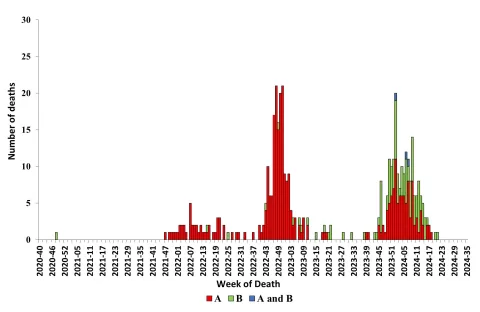CDC vaccine decision-making plays a crucial role in shaping public health policies that impact vaccine safety and efficacy across the nation. Recent evaluations by former members of the CDC’s Advisory Committee on Immunization Practices (ACIP) have raised flags over the declining quality of these decisions, suggesting significant issues with trust and transparency. The structural changes introduced in the committee have sparked concerns, particularly regarding vaccine policy changes, as state-level recommendations have begun to flourish, leading to a more fragmented immunization landscape. Moreover, vaccine safety concerns loom large among the public and experts alike, as ACIP’s recent decisions reflect a worrying lack of clarity and understanding of vaccination protocols. As the credibility of CDC advisory processes wanes, it is clear that restoring robust and evidence-based decision-making practices is essential for maintaining the integrity of immunization strategies.
The decision-making framework for vaccine policies utilized by the CDC is under scrutiny as the organization faces mounting challenges related to its credibility and operational effectiveness. Experts from the former ACIP team have critiqued the shifts in vaccine recommendation protocols, drawing attention to essential areas that require urgent improvement in governance and transparency. As the national dialogue around vaccination continues to evolve, broader public concerns arise regarding the efficacy and safety of the vaccines recommended for various age groups. Adjustments to immunization practices, alongside clear communication about risks and benefits, are becoming increasingly vital as various stakeholders seek to ensure informed choices about vaccinations. Enhancing the procedural integrity of the CDC’s advisory committee is paramount to rebuild trust with the communities reliant on these critical health guidelines.
The Decline in CDC Vaccine Decision-Making Quality
Recent evaluations of the CDC Advisory Committee on Immunization Practices (ACIP) have shown a troubling decline in the quality of vaccine decision-making. Once considered a leading authority, ACIP’s policymaking maturity rating has plummeted from a perfect score to a mere 58%. This decline raises significant concerns about the implications for public health and pandemic response, especially as vaccine policy changes can directly impact immunization practices across the nation.
Deficiencies in ACIP’s decision-making process, as highlighted by 14 former voting members, reveal a potential crisis of credibility. The inability to maintain protocols and engage in transparent discussions about vaccine recommendations has led to fragmentation in the vaccine landscape. With states issuing their own vaccine recommendations, the overall effectiveness of national immunization strategies could be jeopardized.
Impact of Structural Changes on Vaccine Policy
The restructuring of ACIP, particularly with the replacements of its voting members, has sparked debates about expertise and reliability in vaccine recommendations. The inclusion of individuals with questionable backgrounds in immunology or public health can lead to hesitancy and confusion among healthcare professionals and the public alike. This shift has raised concerns about how well ACIP will address and implement CDC vaccine decision-making in a coherent and scientifically sound manner.
Furthermore, the recent missteps during ACIP meetings, including transparent process violations, suggest a shift away from evidence-based policymaking. Disruptions caused by poor management and communication reflect a deeper worry about the committee’s priorities, especially in light of the urgent need to address vaccine safety concerns and public perceptions surrounding vaccinations.
The Role of Transparency in Vaccine Recommendations
Transparency has always been a cornerstone of effective vaccine policy, and recent events surrounding ACIP highlight how its absence can undermine public trust. The irregularities in meeting protocols and the lack of consultation with medical liaison organizations indicate a deterioration of established practices that previously ensured accountability and thorough vetting of vaccine recommendations. With a significant portion of the public constantly assessing vaccine safety, any perceived lack of transparency can exacerbate existing fears and hesitance.
Additionally, discussions that take place behind closed doors compromise the integrity of the policymaking process. ACIP’s responsibilities extend beyond just making recommendations; they also involve engaging with the broader public and healthcare community to foster understanding and acceptance of vaccines. Without transparent processes, it becomes increasingly difficult to cultivate trust and adherence to immunization practices recommended by health authorities.
Vaccine Safety Concerns and Public Perception
In an environment increasingly marked by vaccine skepticism, public perception is heavily influenced by perceived safety concerns. Recent decisions that are perceived as hasty or inadequately justified can lead to significant backlashes against vaccination efforts. The notion that ACIP is no longer prioritizing the rigor of scientific evaluation in favor of addressing perceived harms can negatively alter the public’s willingness to accept vaccinations, which could have dire consequences for herd immunity.
Moreover, amidst rising cases of preventable diseases, the focus on unproven vaccine harms using low-quality data reflects poorly on the committee’s credibility. Parents and guardians need assurance from trusted health agencies that vaccines are not only safe but beneficial. The credibility crisis facing ACIP could significantly impede efforts to increase vaccination rates among children and adults, ultimately reversing years of public health progress.
ACIP’s Credibility Crisis
The decisions and policies emerging from ACIP are now scrutinized with skepticism, rendering the committee in a credibility crisis. Previous perceptions of ACIP as a pillar of public health are diminishing due to recent misjudgments in the vaccine approval process. With many members displaying a lack of understanding during crucial votes, it signals to the public that the guidance provided may not rest on a solid foundation of expertise or thorough investigation.
Amidst the challenges in vaccine policy changes, the committee’s past reliability is cast into doubt. To regain public trust, ACIP must focus on restoring rigorous evidence-based practices that underpin their recommendations. The need for high standards in policymaking is paramount to ensure that vaccinations are viewed as a critical element in safeguarding public health.
Challenges of Fragmentation in Vaccine Recommendations
As states begin developing their own vaccine recommendations, fragmentation poses notable challenges for national health efforts. This multiplicity of guidance can confuse healthcare providers and the public alike, further complicating already complex immunization practices. Coordination among states and federal guidelines is crucial to maintain a unified front in vaccination campaigns, especially during public health crises.
Fragmentation can lead to disparities in vaccine access and uptake between regions, which exacerbates inequalities in public health outcomes. It’s essential that ACIP refocuses its efforts to collaborate more extensively with state health departments and medical organizations to create a cohesive national immunization strategy that adheres to the CDC vaccine decision-making standards.
The Importance of Evidence-Based Decision Making
The transition from expert-led discussions to processes marked by uncertainty underscores the importance of evidence-based decision-making in public health. ACIP’s reliance on sound, data-driven methodologies is crucial for the credibility of their vaccine recommendations. This involves utilizing established frameworks like GRADE and Evidence to Recommendations to ensure that decisions reflect high standards of scientific integrity.
As vaccine hesitancy grows, the need for decisions grounded in robust evidence becomes even more critical. Implementing systematic reviews and ensuring that policy recommendations respond to current scientific knowledge can help maintain public confidence in vaccination initiatives. Without a commitment to thorough, evidence-based practices, the public’s faith in vaccination will continue to erode.
Navigating Vaccine Policy Changes
With ongoing debates surrounding vaccine policy changes, ACIP must navigate these complexities with care to avoid exacerbating existing fears. The recent discussions and votes often reflect a significant departure from established norms, with policymakers needing to be cognizant of the ramifications of their decisions on public trust and health. A careful approach that considers both scientific evidence and public sentiment is vital.
Moreover, ensuring that vaccine recommendations are based on comprehensive evaluations of safety, effectiveness, and public needs is essential for fostering a trustful relationship between health authorities and the community. Transparency in policy changes and open dialogues with the public can help mitigate misunderstandings and misinformation regarding vaccines.
Restoring Independence in Vaccine Decision Making
One key recommendation identified by experts involves restoring independence in ACIP’s decision-making processes. This independence is crucial in ensuring that external influences do not compromise the integrity of their recommendations. By reinstating objective analyses free from conflicting interests, ACIP can enhance its credibility and reaffirm its role as a trusted authority.
Independent decision-making allows the committee to better focus on the science behind immunization practices, aligning them with the evolving public health landscape. Improved independence can lead to more transparent discussions regarding vaccine safety concerns, supporting ACIP’s efforts to navigate the complexities of current vaccine policies.
Future Directions for ACIP and Vaccine Policies
Looking ahead, the future of ACIP and its vaccine policies hinges on its ability to learn from past errors. A commitment to enhancing the quality of decision-making and prioritizing evidence-based practices will be pivotal in restoring its reputation as a leader in public health. Continuous evaluation and adaptation of vaccine recommendations are necessary for navigating the nuances of emerging health challenges.
ACIP must also prioritize engagement with communities to rebuild trust in vaccine recommendations. By actively addressing vaccine safety concerns and fostering an inclusive dialogue, the committee can better connect with diverse populations, ultimately increasing vaccine acceptance and improving public health outcomes.
Frequently Asked Questions
What are the key concerns regarding CDC vaccine decision-making as per recent evaluations?
Recent evaluations of CDC vaccine decision-making highlight several key concerns, including a substantial decline in the quality of recommendations made by the Advisory Committee on Immunization Practices (ACIP), dropping from a 100% to a 58% maturity rating. Notable issues include a lack of transparency, inappropriate closed-door discussions among voting members, and a shift in focus from evidence-based vaccine policy development to concerns over vaccine safety.
How has ACIP’s vaccine policy changed and affected its decision-making processes?
ACIP’s vaccine policy has undergone significant structural changes, leading to decreased effectiveness in its decision-making processes. The removal of experienced members and the replacement with individuals lacking relevant expertise has raised concerns about the quality of recommendations, as well as transparency and independence in decision-making.
What impact do recent vaccine policy changes have on immunization practices for children?
Recent vaccine policy changes by ACIP, including the problematic vote to remove the combined MMRV vaccine for children under four, could disrupt current immunization practices. This change may eliminate options preferred by parents, potentially leading to increased numbers of injections for children and affecting overall vaccine uptake.
What evidence do experts provide to support their critique of CDC vaccine decision-making?
Experts cite a decline in clarity and rigor during ACIP meetings, noting a failure to adhere to standard protocols and inadequate consulting with medical liaison organizations. Furthermore, the critique points to poorly framed policy questions and reliance on low-quality safety data, undermining the integrity of the vaccine decision-making process.
How can the CDC restore credibility in its vaccine decision-making process?
To restore credibility, the CDC must prioritize evidence-based and independent decision-making in its vaccine policy formulation. This involves enhancing transparency, re-establishing rigorous protocols, and incorporating diverse expert opinions to ensure well-informed guidelines that maintain public trust.
What role does public trust play in CDC vaccine decision-making?
Public trust is crucial for effective CDC vaccine decision-making. The decline in ACIP’s credibility following procedural missteps has highlighted the need for the agency to reinforce trust through transparency, accountability, and reliance on solid, evidence-based recommendations in vaccine policy.
| Key Points | Details |
|---|---|
| Decline in Decision Quality | CDC Advisory Committee on Immunization Practices (ACIP) policymaking maturity rating dropped from 100% to 58% from April to September. |
| Structural Changes | Significant changes in ACIP structure and processes have negatively impacted recommendation quality. |
| Leadership Overhaul | All 17 sitting ACIP members were replaced, including those with limited experience in relevant fields. |
| Transparency Issues | There were instances of behind-closed-doors discussions and violations of established procedures. |
| Credibility Decline | ACIP’s credibility has decreased due to missteps and a departure from sound vaccine policy development practices. |
| Fragmentation in Recommendations | Various states are issuing their own vaccine recommendations, leading to inconsistency. |
Summary
CDC vaccine decision-making has faced a significant decline in quality in recent months due to leadership changes and procedural missteps. An assessment revealed a fall in policymaking maturity ratings, highlighting issues such as transparency violations and a lack of qualified experts. To restore credibility and public trust, the CDC must prioritize evidence-based recommendations and transparency in its processes.
The content provided on this blog (e.g., symptom descriptions, health tips, or general advice) is for informational purposes only and is not a substitute for professional medical advice, diagnosis, or treatment. Always seek the guidance of your physician or other qualified healthcare provider with any questions you may have regarding a medical condition. Never disregard professional medical advice or delay seeking it because of something you have read on this website. If you believe you may have a medical emergency, call your doctor or emergency services immediately. Reliance on any information provided by this blog is solely at your own risk.








